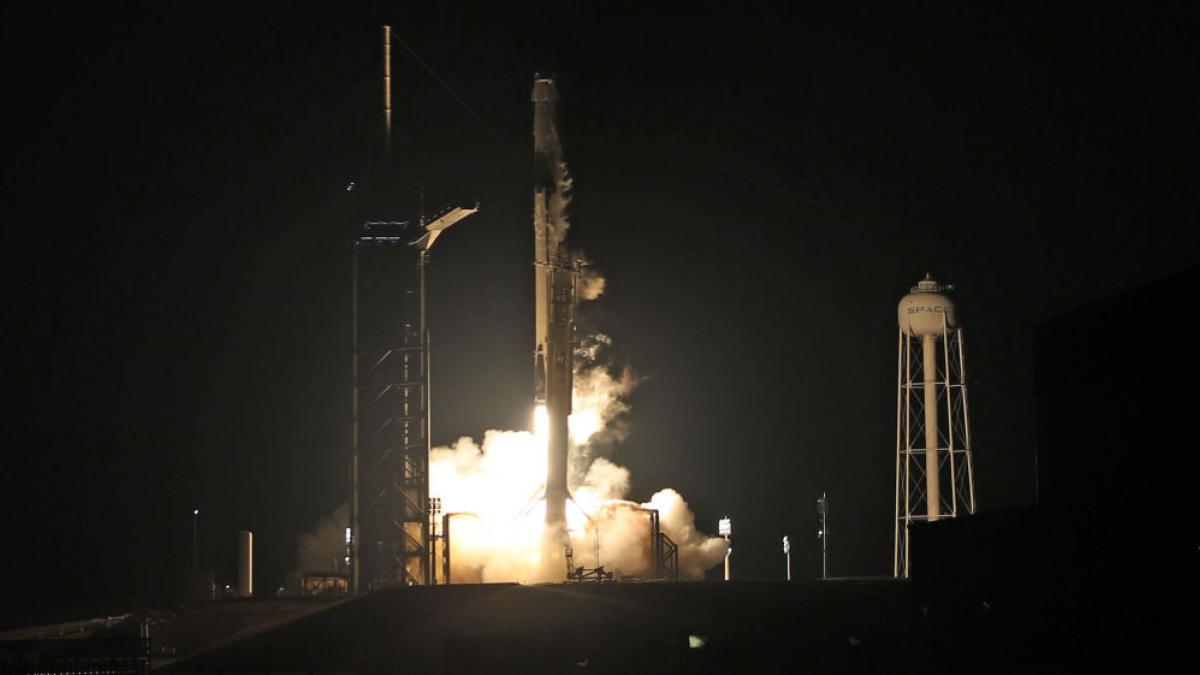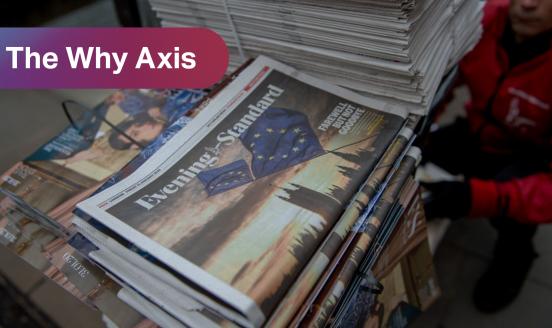In failure or success, SpaceX is a wake up call for Europe
Europe is lagging behind in cost-effective delivery of payloads into orbit

On 20 April, a prototype orbital rocket, Starship, built and operated by Elon Musk’s SpaceX, reached an altitude of 39 kilometres before exploding. While some in Brussels, Paris or Beijing may have experienced a degree of schadenfreude at the aborted launch test and delays it will cause, the setback has bought competitors only limited time to catch up. SpaceX’s next two test vehicles are lined up already and modifications to ground infrastructure are underway. Europe cannot afford to sit idly by and watch as SpaceX continues to innovate and improve.
If Starship eventually becomes operational, it will be one of the largest orbital rockets ever built, able launch its payloads into orbit at a fraction of today’s costs. It is designed to be fully reusable, a feat that has so far escaped every other rocket design, including the now-retired Space Shuttle. The project is divisive, with the rocket’s design, economic viability and environmental impact criticised by some observers. The American Federal Aviation Administration suspended the Starship launch licence in the aftermath of the 20 April explosion, pending a safety and environmental review which could last months.
Nevertheless, Europe’s industry and policymakers should start planning for a new era in space. The main constraint is cost. At the beginning of the 2010s, the cost to put one kilogramme into low earth orbit ranged from $18,000 dollars for the Space Shuttle in its last years, to $9000 for Europe’s Ariane 5 and $5000 for Russia’s Proton (not longer available to European operators because of the war in Ukraine).
SpaceX, with its solid, long-term contracts, especially with NASA, has already cut the cost substantially. Its Falcon 9 provides access for as little as $2700/kg while Falcon Heavy cuts it even more to about $1400/kg.
Starship, with a payload of up to 150 tonnes, could lower these figures dramatically. If SpaceX remains a dominant player, it would have free rein to set prices and maximise profits.
The launching market is becoming more competitive – but most new entrants are not European. Blue Origin, a private company owned by Amazon founder, Jeff Bezos, is developing a rocket called New Glenn, which it claims will be one of the most affordable launch vehicles available. The Chinese space programme is also aiming at competing on cost efficiency and at increasing the frequency of launches from mobile and sea-based launch pads.
Regardless of SpaceX’s short-term setbacks, therefore, the European Union needs to act or be left behind. The EU has various space projects and initiatives, including the Galileo satellite navigation system and the Copernicus Earth observation programme. The Ariane 6 launcher is under development, offering an estimated $7,200/kg to get to low earth orbit – more expensive than the already existing SpaceX alternatives. While Europe’s commercial payload operators could benefit from access to a cheaper US space transport market, over-relying on the US puts the EU in a vulnerable position.
The implications go far beyond the commercial realm. Starship could potentially guarantee exclusive space access to the US military at a fraction of the current cost, revolutionising the role the space theatre plays in defence. The new economics of the space sector mean that, even for the military, the problem is no longer simply having the ability to put a satellite into orbit, or to take a hostile satellite down. When launching a new satellite costs many times less than the anti-satellite missile that eventually takes it down, those with the cheapest and most reliable launch capabilities will enjoy a major advantage.
Europe has no hope of matching such performance for now, and there are no quick fixes. First, when it comes to research and development, Europe should prioritise investment in reusability and cost-competitive access to space. Second, the EU must be prepared to take on more risk and increase overall public and private sector funding for space travel. Third, long-term contracts from public space agencies and the EU should be increased, with separate streams for new players and incumbents. Finally, Europe must continue to build on its strengths, including space components, instruments and satellite manufacturing.
Starship’s mishap opens a narrow window of opportunity for Europe to begin to catch up. Given the focus on strategic autonomy and economic security, it is time for the EU to reassess its goals and approaches to space.



